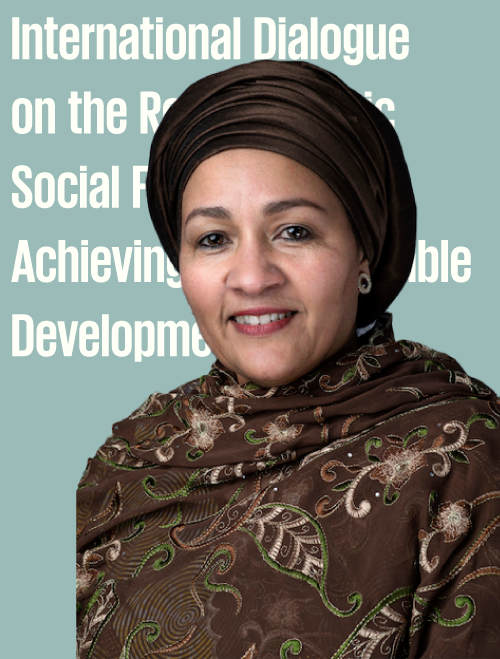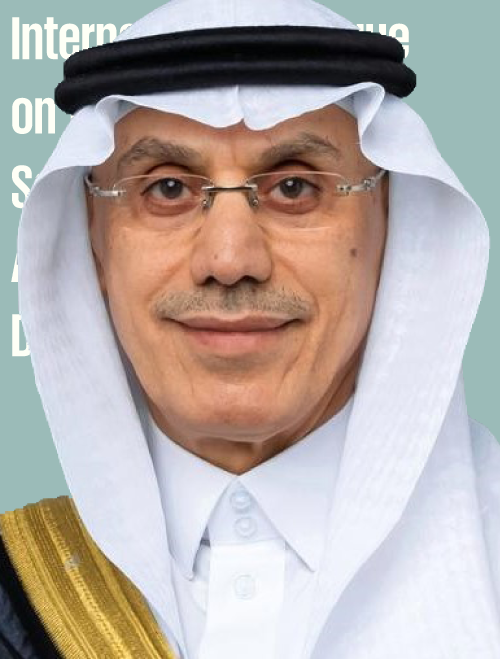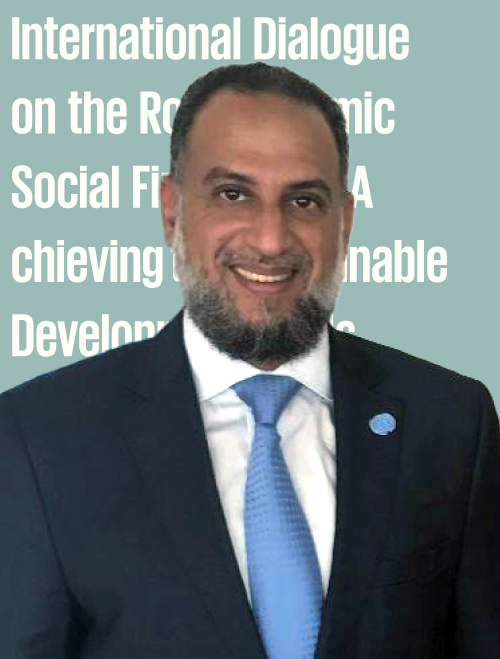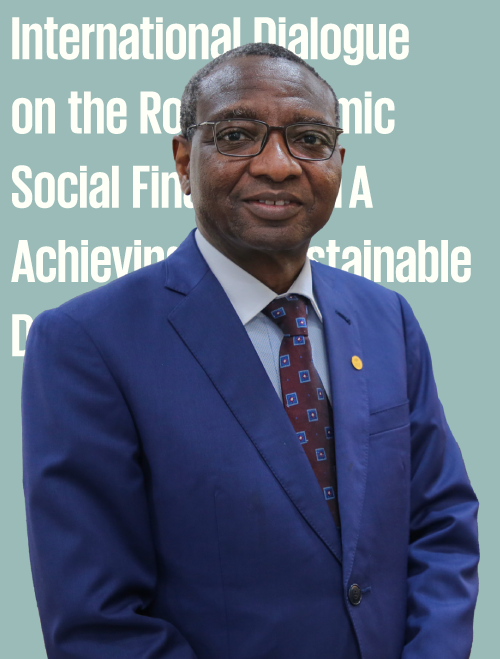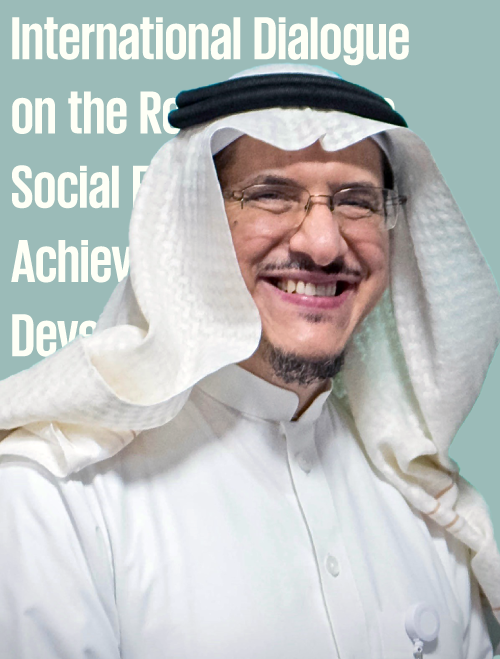International Dialogue on the Role of Islamic Social Financing
in Achieving the Sustainable Development Goals
Overview
The International Dialogue on the Role of Islamic Social Financing in Achieving the Sustainable Development Goals is a global discussion on unlocking the potential of Islamic social financing to support global efforts to end extreme poverty, boost economic development, respond to the impact of the devastating COVID-19 pandemic and help countries get back on track to meet the Sustainable Development Goals – the world’s blueprint to achieve a better and more sustainable future for all by 2030. We invite global leaders, Islamic institutions, government representatives to join the discussion. The Dialogue is part of the Initiative on Financing for Development in the Era of COVID-19 and Beyond, which calls on the international community to utilize innovative forms of public and private finance to support pandemic response. The Dialogue consists of a series of virtual Seminars designed to foster a better understanding of both Islamic social financing and existing UN platforms and initiatives. Following the Seminars, the Dialogue will - 1. establish a knowledge database to serve as a longstanding repository of information and resources on Islamic social financing and the SDGs; 2. prepare a draft roadmap, with concrete recommendations, on the way forward to enrich existing mechanisms, identify gaps, and propose methods of using Islamic social financing to achieve the SDGs.
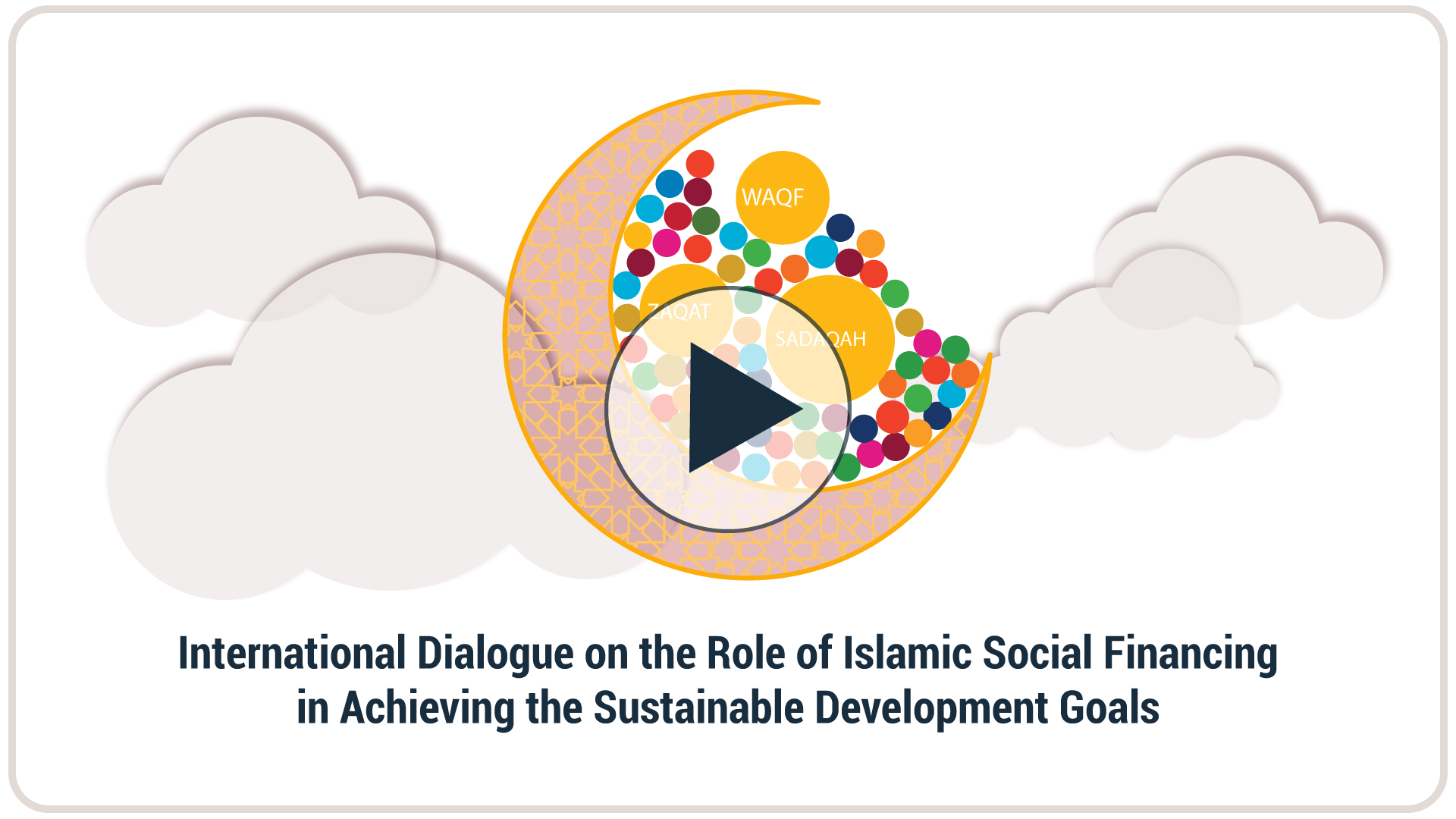
1. Background
International Dialogue on the Role of Islamic Social Financing in Achieving the Sustainable Development Goals Download
High-Level Launch Event
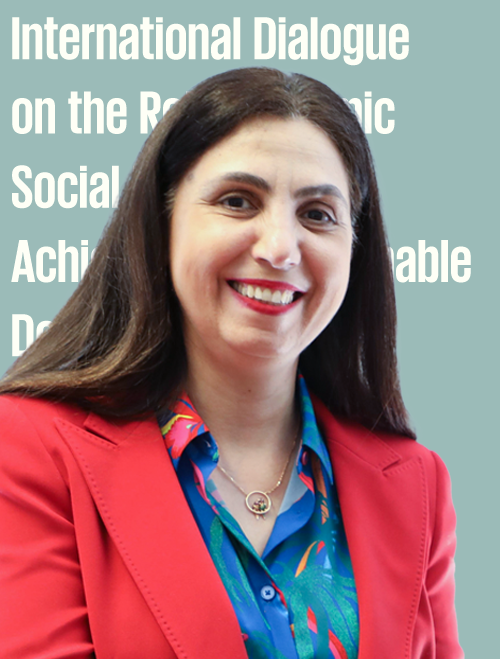
Dr. Rola Dashti
Under-Secretary-General of the United Nations and Executive Secretary of the Economic and Social Commission for Western Asia (ESCWA)
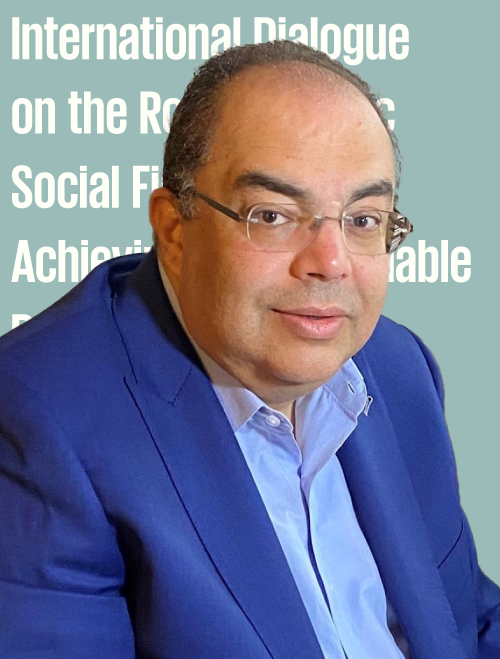
Dr. Mahmoud Mohieldin
Secretary-General’s Special Envoy on Financing the 2030 Agenda for Sustainable Development, United Nations
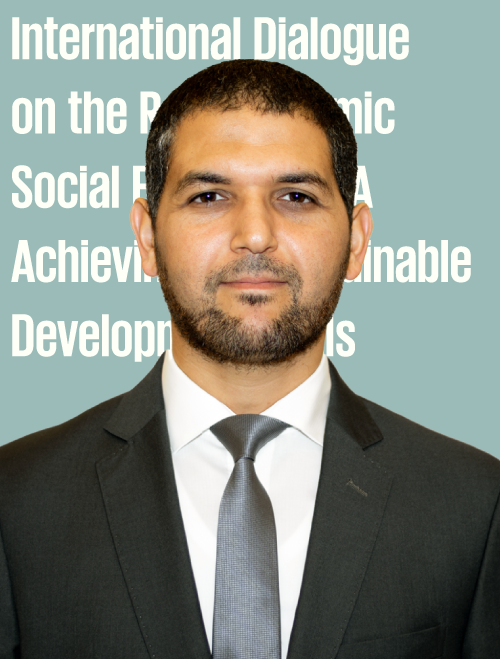
Dr. Mohamed Ali Chatti
Director, Awqaf Properties Investment Fund, Islamic Development Bank Group
TUESDAY 11 MAY 2021 8.00-8.50AM (EASTERN TIME) 15.00-15.50 (JEDDAH TIME)
Format: Virtual
High-level event on the Role of Islamic Social Financing in Achieving the SDGs
Speakers
Ms. Amina Mohammed, Deputy Secretary-General United Nations
Dr. Bandar Hajjar, Executive Secretary, United Nations Economic and Social Commission for Western Asia (ESCWA)
Rola Dashti, Executive Secretary, United Nations Economic and Social Commission for Western Asia (ESCWA)
Dr. Mahmoud Mohieldin, Secretary-General’s Special Envoy on Financing the 2030 Agenda for Sustainable Development, United Nations
Dr. Ahmed Al Meraikhi, Special Adviser to the United Nations Secretary-General Moderator
Dr. Rami Ahmed, Islamic Development Bank Special Envoy on SDGs & Adviser to the President
Moderator
Dr. Rami Ahmed, Islamic Development Bank Special Envoy on SDGs & Adviser to the President
Seminars
To better understand the existing mechanisms that leverage Islamic social financing for the SDGs, 60-90min seminars on specific initiatives will be held. The goal of these seminars is to fully understand how these mechanisms operate, identify gaps and determine how actors can support these mechanisms. These seminars will not only look at the efforts of international organisations but also of national organisations where appropriate.
Seminar 1 Download summary
Date and time (Riyadh Time – UTC+3)
Tuesday, 15 June 15.00
Format:Virtual
A virtual discussion amongst stakeholders on the history, origins, growth and goals of Islamic social finance. This session will invite scholars of Islamic social finance to discuss how Islamic social financing is used to help communities and the overarching aims of zakat, sadaqah, and waqf. concept-note
Seminar 2 Download summary
Date and time (Riyadh Time – UTC+3)
Wednesday, 23 June 15.00
Format:Virtual
These discussions will provide in-depth looks at the mechanisms used to implement zakat, sadaqah and waqf including presentations on several national experiences with these mechanisms. This discussion will also include the roles that governments and shari'a boards play in Islamic social financing mechanisms. concept-note
Seminar 3 Download summary
Date and time (Riyadh Time – UTC+3)
wednesday, 14 July 15.00
Format:Virtual
A seminar to explore how the various Islamic giving models can be utilised to respond to humanitarian challenges around the world. The session will explore: how Islamic Social Finance bodies can align their work with UN partners and the SDG Framework; beyond humanitarian response what is the role of Muslim Philanthropy in addressing socio-economic development challenges; how Muslim philanthropy can catalyse longer-term sustainable investment. concept-note
Seminar 4 Download summary
Date and time (Riyadh Time – UTC+3)
tuesday, 3 August 15.00
Format:Virtual
Awqaf (singular waqf, Islamic charitable endowments) are considered a form of Islamic social finance. They have played a critical role in Islamic civilization and provide a powerful tool to fill the SDGs financing gap, especially given their strong resource mobilization potential. Towards this end, the Islamic Development Bank (IsDB)’s Awqaf Properties Investment Fund (APIF) was established in 2001 to promote the role of awqaf as a tool of development, via using modes of Islamic finance to support the development, renovation and purchase of properties to be used as awqaf. APIF is an impact investment fund providing both financial and social-impact returns to investors. Through APIF, IsDB has succeeded in operationalizing Awqaf financing. It has succeeded in taking the endowments model (practiced both in the traditional Muslim World as well as in the modern West – e.g. in universities) and transforming this model into a tool of development policy. In this way, IsDB has positioned Awqaf financing at the frontier of development practice. The aim of the current seminar is to introduce APIF specifically and the awqaf model more generally, including the major benefits and challenges of awqaf as a development model as well as relevant case studies. concept-note IsDB-BISEW Final Updated.pdf SDG INVESTING - Dr. Hurriyah.pdf
Seminar 5 Download summary
Date and time (Riyadh Time – UTC+3)
wednesday, 8 September 15.00
Format:Virtual
This seminar will explore how the GMPFC operates, the strategic partnership that has been made with the Islamic Development Bank and how Muslim Philanthropists can utilise this fund as a means to achieve greater impact. concept-note
Seminar 6 Download summary
Date and time (Riyadh Time – UTC+3)
Tuesday, 28 September 15.00
Format:Virtual
Climate change is one of the greatest moral, social and environmental issues facing humanity and climate action is embodied in Sustainable Development Goal 13 . This Seminar will explore the areas that zakat, waqf and sadaqah align with the effects of climate change while also presenting specific case studies on existing and past initiatives. concept-note
Part1
scroll down for part 2
Part2
UN Social Finance Dialogue | Islamic Finance & the SDGs 2021 Virtual Summit
Seminar 7 Download summary
Date and time (Riyadh Time – UTC+3)
wednesday, 6 October 15.00
Format:Virtual
The Seminar will present UNHCR’s best practices in Islamic Philanthropy (IP) for the benefit of refugees and internally displaced persons (IDPs), in particular its successful experience with the launch in 2019 of the Refugee Zakat Fund, a trusted, compliant and effective distributor harnessing the power of zakat to transform the lives of refugees and IDPs, including in hard-to-reach areas. Supporting over 1 million beneficiaries the first year of its launch, the Fund is expected to reach nearly 2 million refugees and IDPs this year. With 85% of the $110+ million raised coming from institutional donors, the Fund showcases the core proposition of building sustainable partnerships with IP stakeholders to maximize the humanitarian impact of IP. Partnerships are key to the humanitarian response to displacement crisis, in a time when 1% of humanity has been displaced, a scale that goes beyond the capacity of any individual organization or country to deal with. These partnerships are the result of demonstrated trust in UNHCR’s approach to governance and infrastructure, from collection to distribution, in addition to UNHCR’s expanding Zakat distribution network, currently spanning more than 10 priority countries of operation for UNHCR including Yemen, Bangladesh, Pakistan, Mauritania, Jordan, Lebanon, and Iraq. concept-note
Seminar 8 Download summary
Date and time (Riyadh Time – UTC+3)
wednesday, 20 October 15.00
Format:Virtual
Since 2017, UNRWA was receiving zakat money and was spending it on the most vulnerable Palestine refugees in Gaza, mainly on food and cash assistance programs. UNRWA has expanded its zakat program over the past three years, and has engaged with corporations, government entities and individuals for its zakat program. Overall, UNRWA is also expanding its Islamic social financing capacities to include Sadaqah and Ramadan campaigns. UNRWA views the Islamic social financing as a huge potential for UN and international humanitarian organizations. concept-note
Seminar 9 Download summary
Date and time (Riyadh Time – UTC+3)
Tuesday, 16 November 15.00
Format:Virtual
An innovative mechanism for Utilizing Islamic Social Finance for Poverty alleviation concept-note, coming soon
Seminar 10 Download summary
Date and time (Riyadh Time – UTC+3)
Tuesday, 23 November 15.00
Format:Virtual
The Waqf Fund (endowment) is a multilateral financing facility created by the Organization of Islamic Cooperation (OIC) to support the humanitarian programs of UNRWA for Palestine refugees. The OIC had tasked the Islamic Development Bank (IsDB) to establish the Waqf Fund. UNRWA and the IsDB are aiming to formally launch the Waqf Fund on 1 January 2021. Together with the OIC, they will lead a resource mobilization campaign aimed at capitalizing the fund so that the bank could invest the resources in low risk business ventures that will yield perpetual income for UNRWA. The IsDB and UNRWA have agreed to accept land and/or properties as a tangible contribution to the Waqf Fund as IsDB’s Awqaf Properties Investment Fund (APIF) has agreed to invest in real estate and properties and turn them into a commercial property. concept-note
Seminar 11 Download summary
Date and time (Riyadh Time – UTC+3)
wednesday, 1 December 15.00
Format:Virtual
This seminar will provide an overview of IOM’s stance on Islamic Philanthropy through an engaging presentation of the future IOM Muslim Alms Administration System. This initiative, based on extensive research, would allow the Organization to collect and distribute Zakat, Sadaqah and other forms of Muslim alms, in full compliance with Islamic law and IOM’s internal rules and regulations. The system, which is expected to be operational by December 2020, will allow the IOM to make greater contributions to the efforts of governments and communities to reduce poverty and hunger, prepare and rapidly respond to disasters, rebuild works through the provision of direct assistance to migrants, internally displaced persons, refugees, victims of trafficking, and other vulnerable communities like women, children and persons with disabilities. Additionally, these efforts will catalyse the implementation of relief and development projects to alleviate the suffering of these groups and improve their well-being. concept-note
Seminar 12 Download summary
Date and time (Riyadh Time – UTC+3)
wednesday, 15 December 15.00
Format:Virtual
This seminar will focus on the specific challenges faced in applying the mechanisms of implementation for Islamic social financing within the UN system. concept-note
4. Report
International Dialogue on the Role of Islamic Social Financing (ISF) in Achieving the SDGs Download
7. PREVIOUS CONFERENCES
● Sixth MoU Conference: Monterey, USA, 2019 pdf report
● Fifth MoU Conference: New York, USA, 2017 pdf report
● Fourth MoU Conference: St. Petersburg, Russian Federation, 2015 pdf report
● Third MoU Conference: Shanghai, China, 2013 pdf report
● Second MoU Conference: Mons, Belgium, 2012 pdf report
● First MoU Conference: Salamanca, Spain, 2011 pdf report
8. Media Corner
Testimonials

ISF members testimonials for this event are coming soon

ISF Network members testimonials for this event are coming soon

ISF Network members testimonials for this event are coming soon
